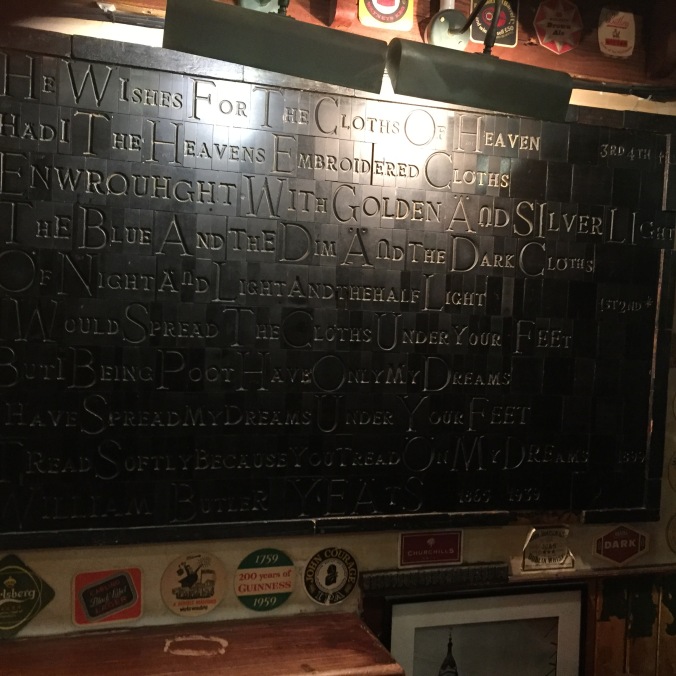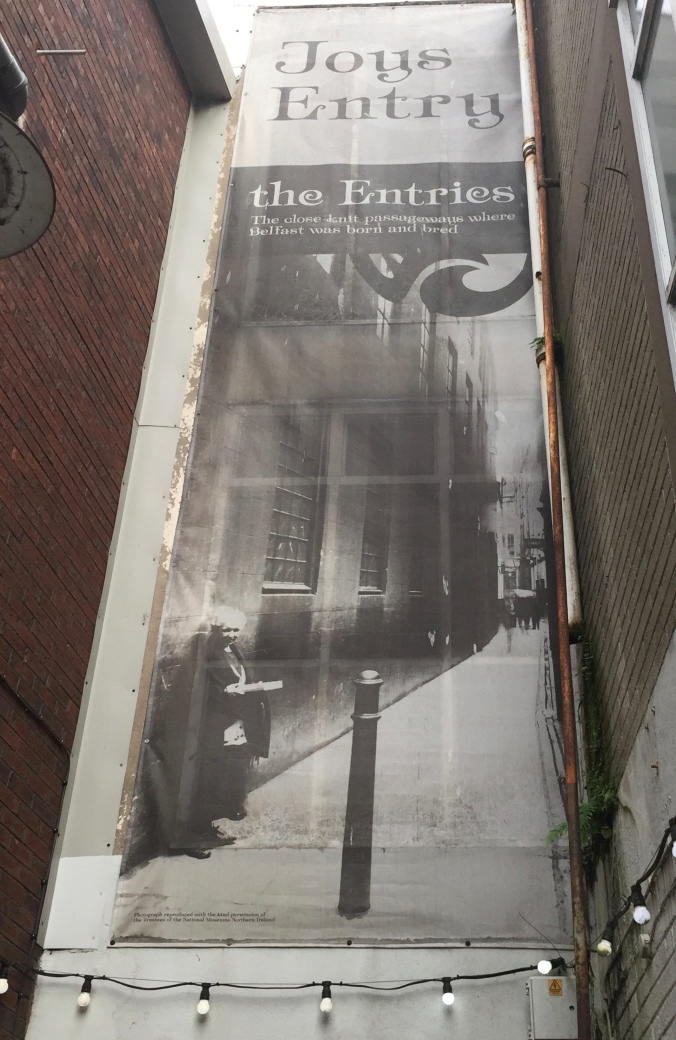One of the aspects of Belfast that I love is its commitment to public art and its use of architecture as a canvas for the people.
The Irish know their literature: here’s some Yeats poetry decorating a bar wall . . .

I love the back alleys – the passageways where Belfast was born and bred.

This photo from back in the day when cigarettes were sold with candy is part of a larger installation of Belfast city pix.

A brutal little story is infused with that Irish mix of tragedy and comedy.

And here’s an image of our playwright friend Martin Lynch in a mural in the Cathedral Quarter.
